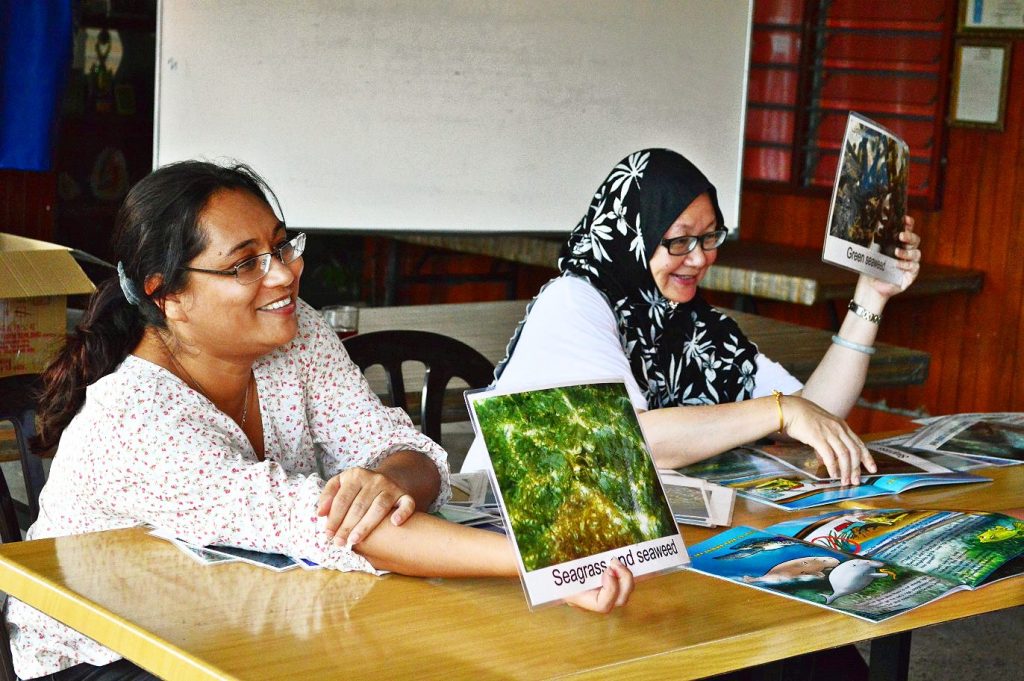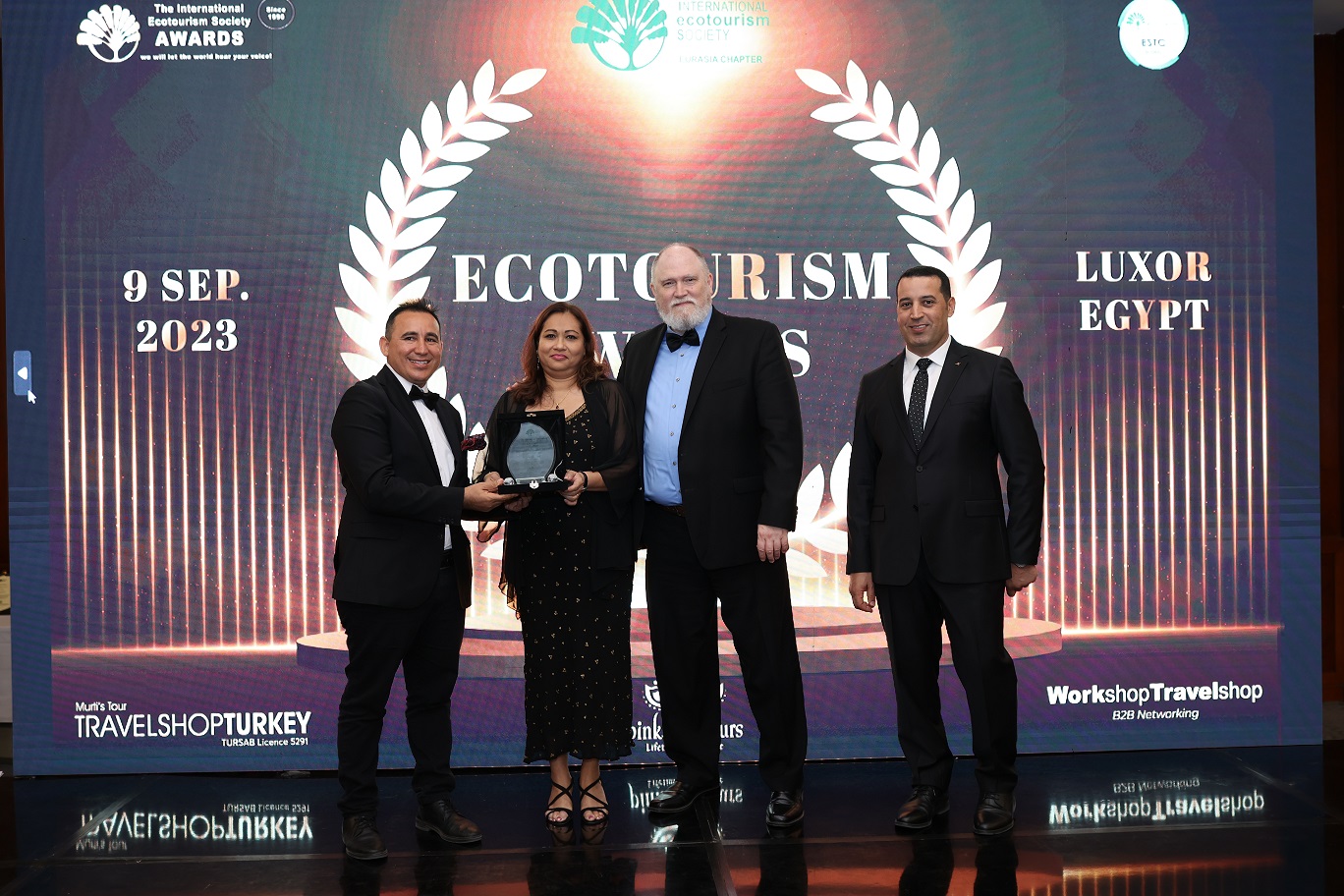The dugong (Dugong dugon) is the only herbivorous marine mammal and closely related to manatees. They are both distant relatives of the elephant, although the giant land animal is not at all similar in appearance or behavior.
Dr Leela Rajamani has been working on the Malaysia dugong and seagrass conservation project (which is supported by the MBZ Fund) between 2015 to 2018. We recently caught up with this eco hero to learn more about her conservation journey.
EDITOR Tell us a bit more about yourself.
LEELA RAJAMANI My name is Leela Rajamani, and I have been involved in the conservation of marine mammals since 2002. My first involvement with a dugong and seagrass initiative was my PhD project which led to additional dugong and dolphin ecological research.
ED What inspired you to get involved in conservation.
LR I was inspired to pursue a career in conservation by National Geographic and their amazing wildlife documentaries, but as a biotech degree holder, long hours in the lab didn’t really appeal to me. For as long as I can remember I’ve always been fascinated by animals, particularly giraffes, but when doing my masters in conservation biology, I discovered my love for whales and dolphins. At that point, no one had done any research on marine mammals and in 2002 I embarked on the first study of dugongs in Malaysia.
ED What did this project teach you.
LR Apart from learning a lot about these majestic beings and the important role they play in a balanced ecosystem, I also learnt that humans are at the center of their survival. People have the ability to create but also destroy and, in this case, to sustain dugongs’ existence, it’s crucial to engage them in our conservation efforts. We did this through an education program on dugongs and seagrasses as well as by encouraging the community to manage their own resources.
ED Have you seen an impact left by this initiative?
LR Absolutely, there has been a lot of interest from a locally owned resort looking to lead the conservation effort to create an eco-tourism concept. Empowering the local community was one of the key milestones when this project launched. Apart from capacity building, changing perceptions is another important objective. As recent as the 1980s, Dugongs were seen as a main food source in the Sibu and Tinggi islands. We needed to show people that dugongs were more valuable alive than dead and that these resources are important for their livelihoods both ecologically and economically.
ED Your work has been acknowledged, please tell us more.
LR MY3 was a team effort and the dugong and seagrass project was voted Best Ecological and Social Responsibility Project at the International Ecotourism Society (TIES). TIES is the largest and oldest ecotourism society in the world with the 18th Annual International Ecotourism & Sustainable Tourism Conference and 3rd Awards ceremony held in Luxor, Egypt from 8-10,September,2023.
ED Lastly, what is next for you.
LR Further dugong conservation and research is required. I’m particularly interested in behaviourial studies of dugongs focusing on resting behaviour and other activities that have not been fully documented. Resting behaviour has only been recorded in the Red Sea in Egypt and not yet undertaken in Malaysia.
ED If anybody wants more information about the your project, where can they find it.
LR There is a very comprehensive website which was set up for the project. It is very useful with tons of information. They can visit www.dugongconservation.org for more information.
ED Thank you for your time and well done on this remarkable conservation success story.
LR Thank you
Dugongs pique our curiosity, draw us closer, and ultimately tug our heart strings. It is important for people like Dr Leela Rajamani and all other stakeholders involved in marine conservation to work together to protect dugongs and their ecosystems which are crucial to the welfare of humanity, and without which dugongs would surely go extinct.



